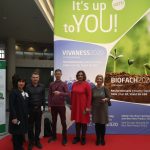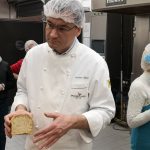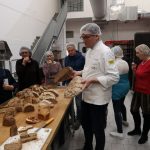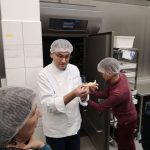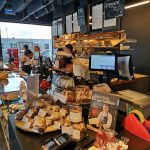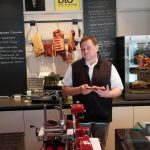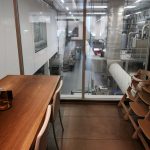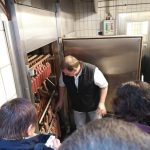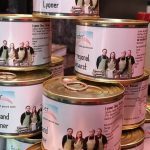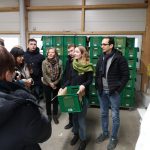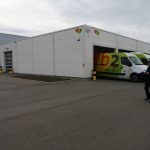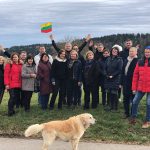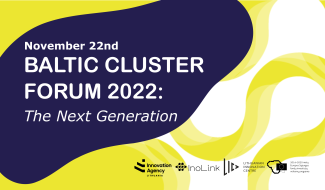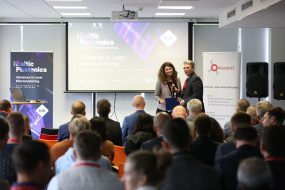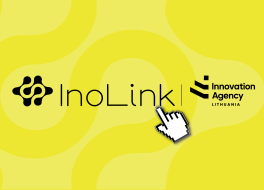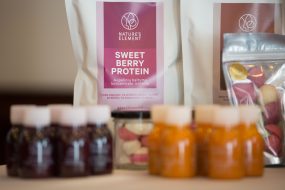The best practice exchange between German and Lithuanian food clusters
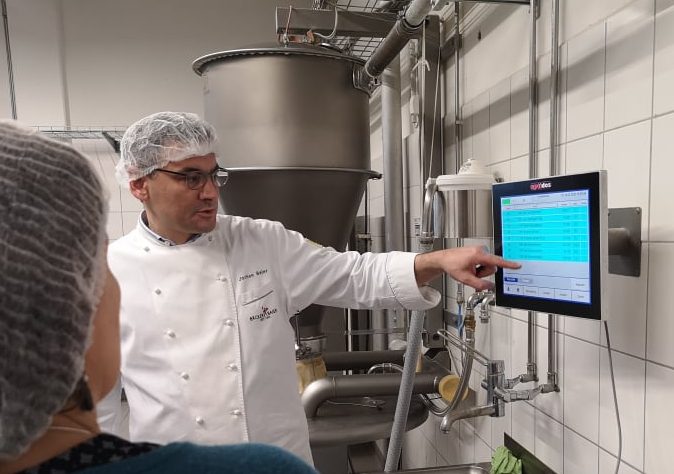
In February, representatives of the National Food Cluster (NaMŪK), participating in the activities of the InoLink project, visited the “BioFach 2020” exhibition in Germany. The latest biodynamic farming technologies and the specifics of the German short supply chains were introduced to the delegation during their business visits in Baden Wurttemberg.
Presenting the services of the “Agency for Science, Innovation and Technology” (MITA) during business meetings cluster development coordinator for InoLink project Vaidė Sakalauskienė noted the significant differences in business opportunities between Lithuania and Germany: “Lithuanian food and non-food producers can use MITA support in R&D activities, preparing applications for national and international calls, attracting investment and even looking for partners. Meanwhile, German entrepreneurs only benefit from support for solar energy – other development activities are funded by the business itself”.
The manufacturers’ forum – opportunity to make new contacts
Taking place at the Nuremberg Exhibition Center, the “BioFach 2020” exhibition is considered to be the largest manufacturers’ forum for reaching out to potential trading partners worldwide. This year, 3,500 participants from more than 100 countries presented their products and services related to organic production. These include 11 Lithuanian companies seeking to expand and establish their business in a new market.
Discussions on organic farming and organic production topics and other business events were held during the exhibition. Representatives of NaMŪK interacted with potential customers to better understand their expectations and establish new contacts.
Peculiarities of the German short supply chain
After the exhibition Lithuanian delegation paid a number of visits to manufacturers in Baden Wurttemberg. Nevertheless, all the entities are carrying out activities in line with cluster initiatives, they are called “short supply chains” in Germany. The chains operate within a radius of about 60 km and aim to maintain local business by supplying organic and biodynamic farm production to the final consumer.
Interestingly, unlike in Lithuania, it is almost impossible for a foreign member to join an already established supply chain because of a state policy. Furthermore, local producers are highly supported, for example, organic farms receive protection against unintentional threats from non-organic farms.
Highlighting quality, customer focus and trust
Representatives of the National Food Cluster have visited the “Backer Baier” bakery, the “Bio Metzgerei Griesshaber” slaughterhouse, the “Schönberghof” biodynamic farm, the “B2-biomarkt” logistics center, and their shop with established catering services.
Entrepreneurs shared their experience in executing orders and organizing access to consumers. Quality, customer relationship management, and direct sales were highly emphasized throughout the meetings. The astonishing fact – all the visited entrepreneurs are successfully collaborating without any partnership agreements for 20 years.
Best practices shared between Germany and Lithuania
Representatives of the National Food Industry Cluster during the meetings presented their activities, shared the best practices of manufacturing innovative products with high added value from Lithuanian raw materials and collaboration with Lithuanian scientists. Participants also discussed the German delegations’ visit to Lithuania.
Currently, NaMŪK combines the confectionery factory “Rūta”, healthy food innovator “Blueberry”, partnership platform “Science coffee”, “Aromatic herbs”, certified raspberry farm “Eideka”, wellness product developer “Spila”, “Daumantai LT”, “Kėdainių konservų fabrikas”, “Sultė”, “Ekosula”, the LAMMC Institute of Horticulture, “Judex”, “SatiMed”, “Salpronė”, “Eco Extractum”, technical maintenance of ventilation and cooling systems provider “Baltic food technologies”, “Serksnas honey”, “Dangaus pupos”, dairy farmer M. Pašibišauskienė and farmer K. Stasiūnaitis.
The main clusters’ objectives are the development of Lithuania’s food industry and the promotion of greater competitiveness, innovation, and entrepreneurship.
In 2018 the National Food Cluster received the “Bronze Label” certificate. This assessment, provided by The European Secretariat for Cluster Analysis (ESCA), is used globally as proof of effective and reliable cluster.
InoLink is a project of the EU tool Inogeb LT, which is run by the Agency for Science, Innovation and Technology (MITA) in cooperation with the Lithuanian Innovation Center. The project aims to promote the clustering of companies, increase cluster maturity, promote growth and international cooperation. The project and its activities are funded by the European Regional Development Fund.
